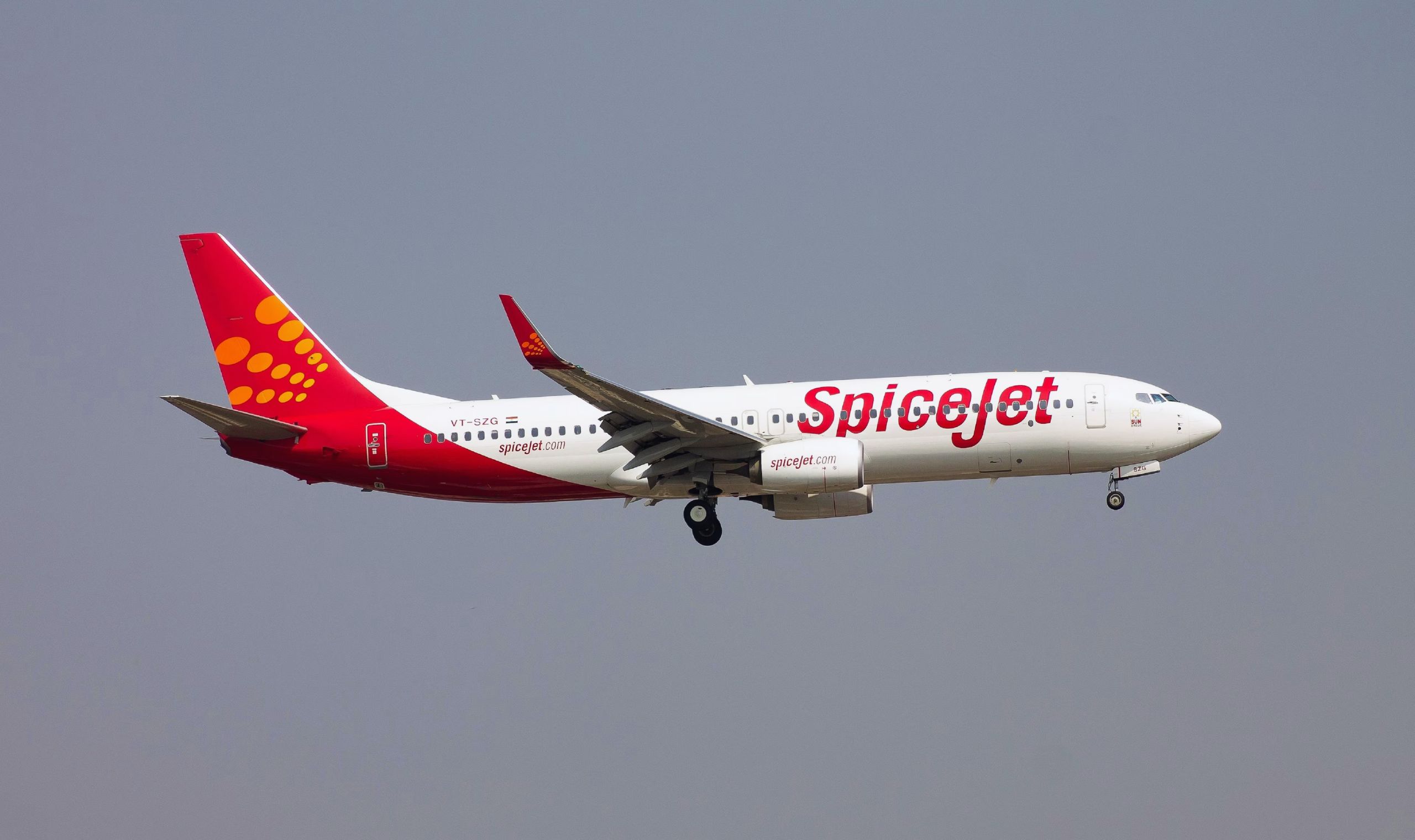SpiceJet Shares soared by 3% on November 28, 2024, after the airline made a much-needed move towards resolving long-standing disputes with various partners. This was after aircraft lessor Aircastle withdrew its insolvency case against SpiceJet before the National Company Law Tribunal (NCLT), a positive turn in the airline’s road to recovery. The mutual settlement between SpiceJet and Aircastle is seen as a key step forward for the airline, which has been working hard to resolve legal issues and rebuild its relationships with aircraft lessors and other key partners. This blog will dive into the details of the settlement, its significance for SpiceJet’s future, and the broader implications for the airline industry.
The Development: A Step Forward for SpiceJet
The positive movement in SpiceJet’s stock comes after a series of successful steps toward resolving financial and operational challenges faced by the airline. Aircastle, one of the major aircraft lessors, had filed an insolvency case against SpiceJet earlier this year due to disputes in payments related to aircraft leases. However, following a mutually agreed-upon settlement, Aircastle decided to withdraw the case, paving the way for a resolution that is expected to benefit both parties. The settlement underscores the firm’s capacity to reconcile with its creditors and partners amicably so as not to cripple its operations through protracted litigations.
According to SpiceJet’s exchange filing, the settlement shows that the company is still working towards rebuilding and strengthening its relationships with different stakeholders in the aviation industry. The airline has been involved in several similar settlements in recent months, indicating a shift towards positive resolution and reconciliation.
Settlement Details and Previous Disputes
The settlement between SpiceJet and Aircastle follows the resolution of a separate dispute involving Wilmington Trust SP Services, based in Dublin. Last month, SpiceJet was able to settle a dispute worth $23.39 million with Wilmington Trust and Aircastle for $5 million. It also covered the specific handling of certain aircraft engines, thereby averting a long legal battle. It was one of the important milestones in SpiceJet, where the airline has demonstrated a willingness to settle and address issues rather than dragging them into protracted litigation.
In addition to the Aircastle and Wilmington Trust legal wrangle, SpiceJet settled other disputes with aircraft lessors. At one time, it had a $22.5 million settled dispute with Babcock & Brown Aircraft Management, a principal aircraft leasing firm. While $22.5 million, a fraction of the alleged claim of $131.85 million, is quite a decent amount, the settlement goes to show how SpiceJet managed to talk its terms in favour of their interests.
Earlier this month another important settlement took place where SpiceJet resolved a $90.8 million dispute it was holding with Export Development Canada for just a fraction of that original amount. SpiceJet managed to settle for just $22.5 million which helped the airlines reacquire 13 Q400 aircraft back-the mainstay for any operational aircraft. The airline managed its liquid position and liability along with recovering important assets on the books.
Impact on SpiceJet’s Financial Health
SpiceJet’s recent legal victories and settlements are part of a broader strategy to stabilize its financial position and strengthen its operations. The airline, like many others in the industry, faced significant challenges during the COVID-19 pandemic, leading to reduced demand, financial instability, and mounting debts. However, with a series of successful settlements, including the Aircastle case, SpiceJet has been able to reduce its outstanding liabilities and focus on its long-term sustainability.
One of the key reasons behind the airline’s recovery has been its recent Qualified Institutional Placement (QIP), which raised Rs 3,000 crore. This huge capital infusion has been crucial for SpiceJet, allowing it to settle its debt obligations, settle outstanding disputes, and strengthen its balance sheet. The QIP was part of the broader strategy of the airline for improvement in its financial health as well as increasing its ability to invest in the modernization of its fleet, infrastructure, and operations.
In addition, SpiceJet is expected to garner Rs 736 crore from the earlier funding round, which would enhance its cash position further. Such inflows of funds would give the airline the capital it needs to resume growth and stay competitive in an increasingly tough aviation market.
Why the Settlement Matters for SpiceJet’s Future
The successful resolution of these disputes is crucial for SpiceJet’s long-term recovery and growth. The airline has been facing numerous challenges in recent years, including regulatory scrutiny, operational hurdles, and financial instability. However, with each successful settlement, SpiceJet is sending a clear message to investors and stakeholders that it is committed to resolving its issues and positioning itself for future success.
1. Benefits of these settlements:
This is the regaining of stakeholder confidence, because investors, customers, and business partners, in general, benefit from such an outcome. It shows that SpiceJet can manage its creditor and lessor relationships since the airline agreed to negotiate and settle amicably. This is important to sustaining SpiceJet for the long term since the airline would not be dragged down by unresolved disputes.
2. Reduced Operational Disruptions:
By resolving disputes, SpiceJet can avert the operational disruptions caused by ongoing litigation. With disputes out of the way, this airline is now free to focus on flight services, customer satisfaction, and fleet management. Thus, the airline will regain momentum in an industry still recovering from the impact of the pandemic.
3. Improved Liquidity and Financial Position:
The settlements have allowed SpiceJet to improve its liquidity position by reducing its liabilities and regaining valuable assets, such as aircraft. The capital raised through the QIP and the additional funding will provide the airline with the financial flexibility needed to expand its fleet, enhance its operations, and explore new opportunities in the market.
4. Positive Market Sentiment:
The resolution of disputes has positively impacted the stock of SpiceJet as its shares have been surging by 3% with the settlement of Aircastle. The positive sentiment from the recovery efforts of this airline has increased investor confidence, which is very critical in raising future investments and hence sustaining growth.
Challenges and Future Outlook
While the recent settlements are positive for SpiceJet, the company still has to work out various issues that will determine whether it will be able to sustain its success in the long run. The aviation industry is highly competitive, and SpiceJet needs to keep innovating and improving its services to stand out from its peers. Moreover, although SpiceJet has settled a few disputes, there could still be some issues that could impact its financial health going forward.
1. Aviation Market Competition:
The presence of intense competition in Indian aviation between full-service carriers as well as from other low-cost operators threatens the share of SpiceJet in this market. The airline shall maintain its market share based on customer satisfaction, reasonable prices, and operational efficiencies.
2. Increasing Cost of Fuel and Operation Costs:
The airline business is extremely vulnerable to fuel price hikes as they affect the operation cost immensely. SpiceJet has to keep a watchful eye on its expenditures and search for every opportunity that may save money for fuel cost increases.
3. Regulatory and Compliance Risk:
The aviation industry is an industry under extensive regulatory oversight; hence SpiceJet needs to operate within the parameters of complying with all safety, operational, and financial regulations. Policy and regulation changes in any government would impact the operations of the airline and the company’s stability.
4. Fleet Modernization and Expansion:
SpiceJet must continue to modernize its fleet and expand its capacity to fulfil the growing demand in the post-pandemic period. The airline has already made significant investments in fleet expansion, but it needs to focus on this to stay ahead in the long run.
Conclusion: A Positive Step Forward for SpiceJet
A successful settlement with Aircastle and withdrawal of the insolvency case is a big step forward for SpiceJet to return to its growth trajectory. SpiceJet is now setting up for a better future with a renewed focus on the resolution of disputes and strengthening relationships with key stakeholders. The QIP and resolution of outstanding legal issues will provide the necessary resources to continue on its growth trajectory.
While challenges remain, the positive developments in SpiceJet’s operations and financial position reflect the resilience and commitment of the airline to overcoming obstacles. As SpiceJet continues its recovery and expansion, it must remain focused on customer satisfaction, operational efficiency, and strategic growth for long-term success in this highly competitive aviation industry. For investors, the recent developments signal that SpiceJet is on the right path toward sustainable growth and profitability, making it an attractive prospect in the Indian airline sector.















0 Comments